Chlamydial Infection Treatment in Adolescents and Adults
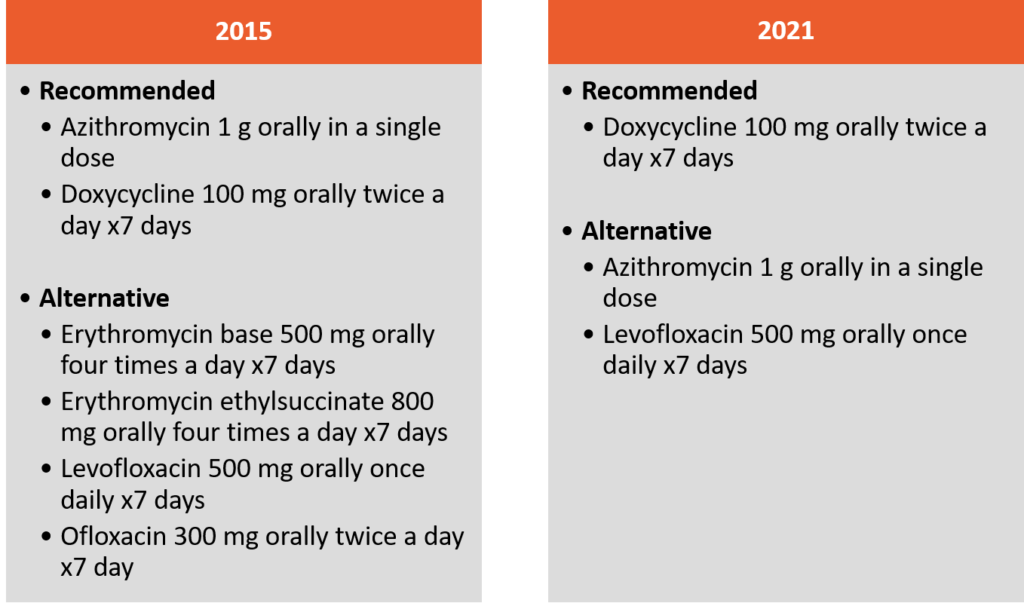
Chlamydial Infection Treatment in Pregnancy
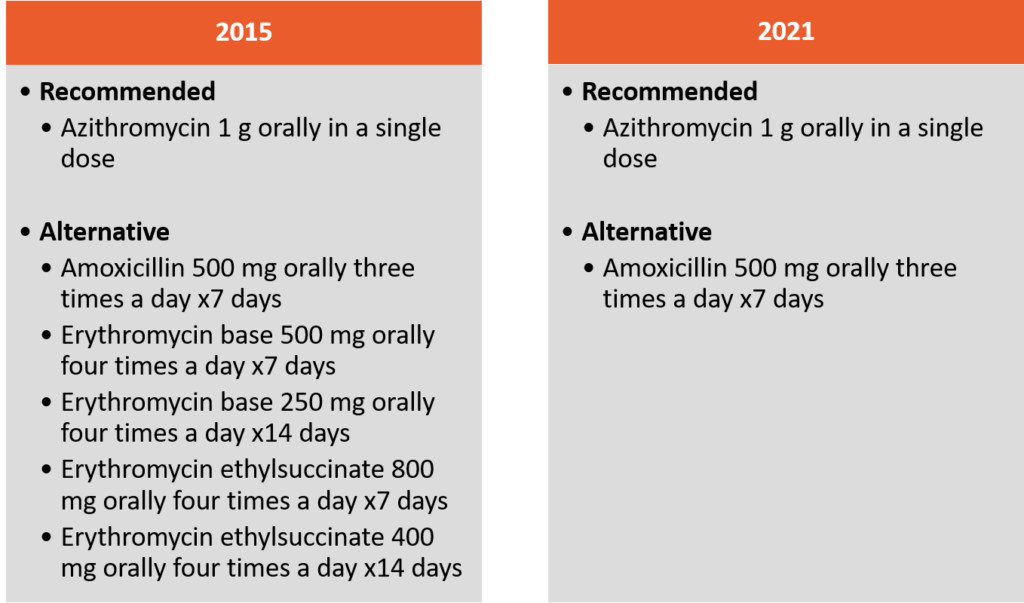
•Test of cure (i.e., repeat testing after completion of therapy) to document chlamydial eradication, preferably by NAAT, at approximately 4 weeks after therapy completion during pregnancy is recommended because severe sequelae can occur among mothers and neonates if the infection persists
•Because of concerns regarding chlamydia persistence after exposure to penicillin-class antibiotics, amoxicillin is listed as an alternative therapy for C. trachomatis for pregnant women
•Erythromycin is no longer recommended because of the frequency of gastrointestinal side effects that can result in therapy nonadherence.
•Systematic reviews and meta-analyses have noted an association with macrolide antimicrobials, especially erythromycin, during pregnancy and adverse child outcomes
Chlamydial Infection Treatment Considerations
- When nonadherence to doxycycline regimen is a substantial concern, azithromycin 1 g regimen is an alternative treatment option
- Among persons receiving multidose regimens, medication should be dispensed with all doses involved, on-site and in the clinic, and the first dose should be directly observed
- On-site, directly observed single-dose therapy with azithromycin should always be available for persons for whom adherence with multiday dosing is a considerable concern
Uncomplicated Gonococcal Infection of the Cervix, Urethra, or Rectum
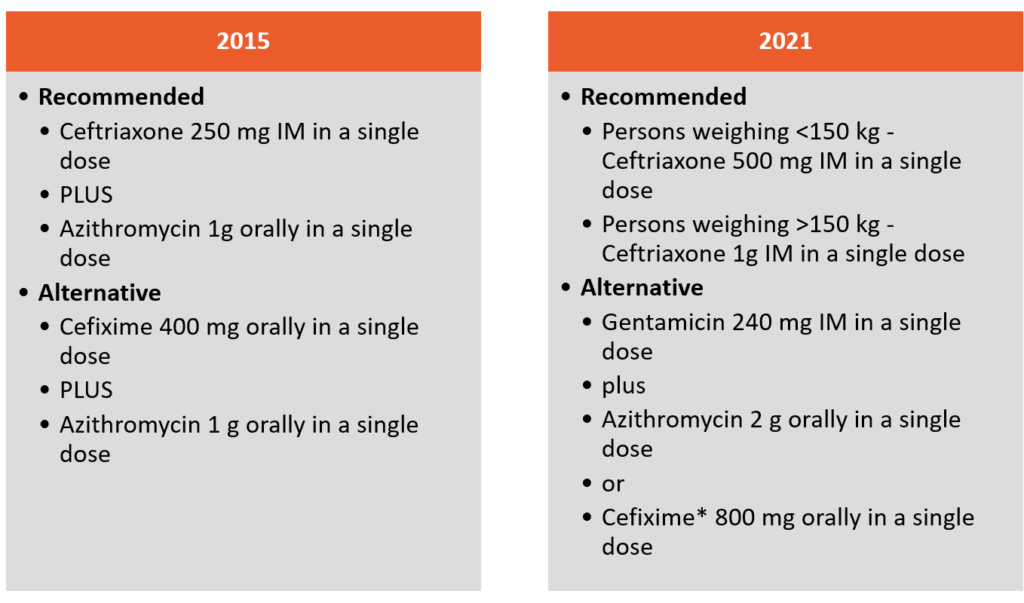
Uncomplicated Gonococcal Infection of the Pharynx
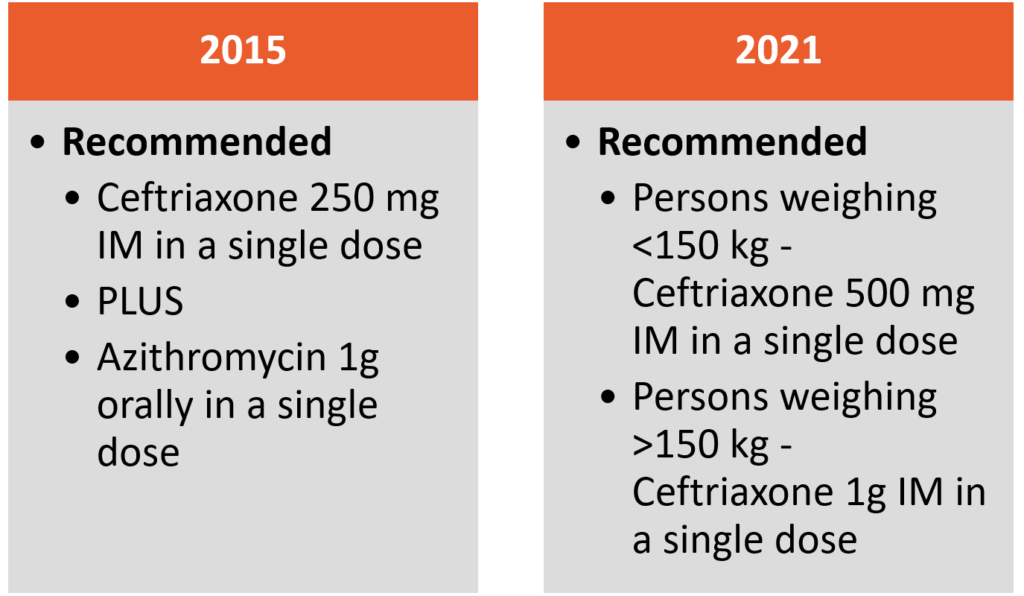
Gonococcal Conjunctivitis
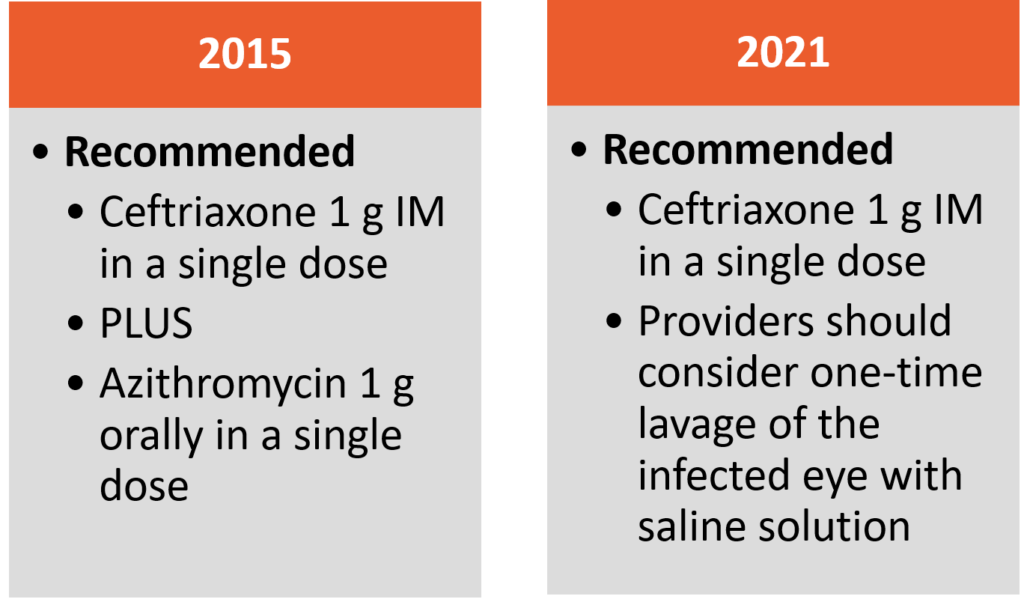
Treatment of Arthritis and Arthritis-Dermatitis Syndrome
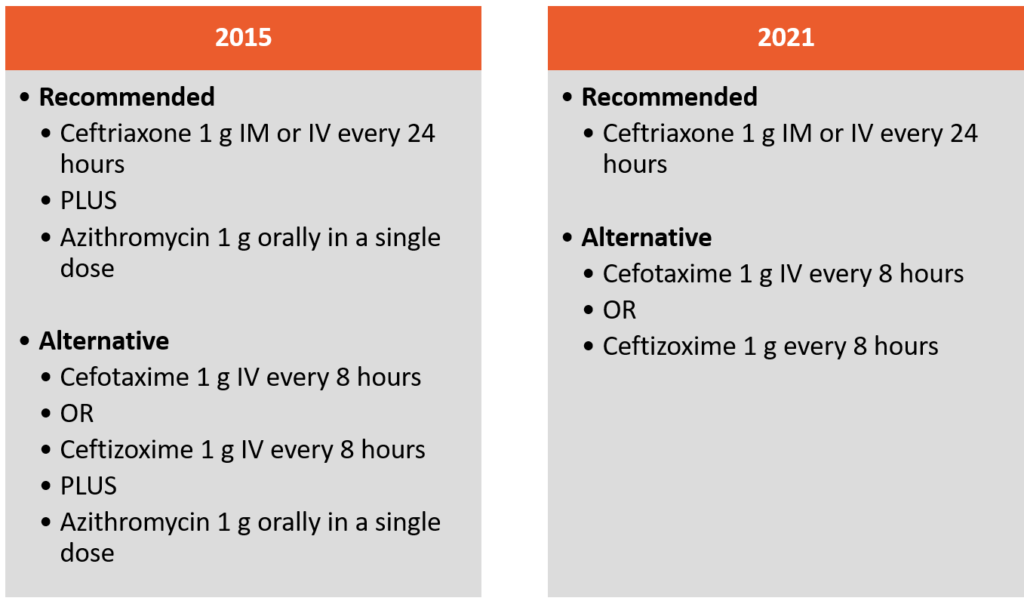
Treatment of Gonococcal Meningitis and Endocarditis
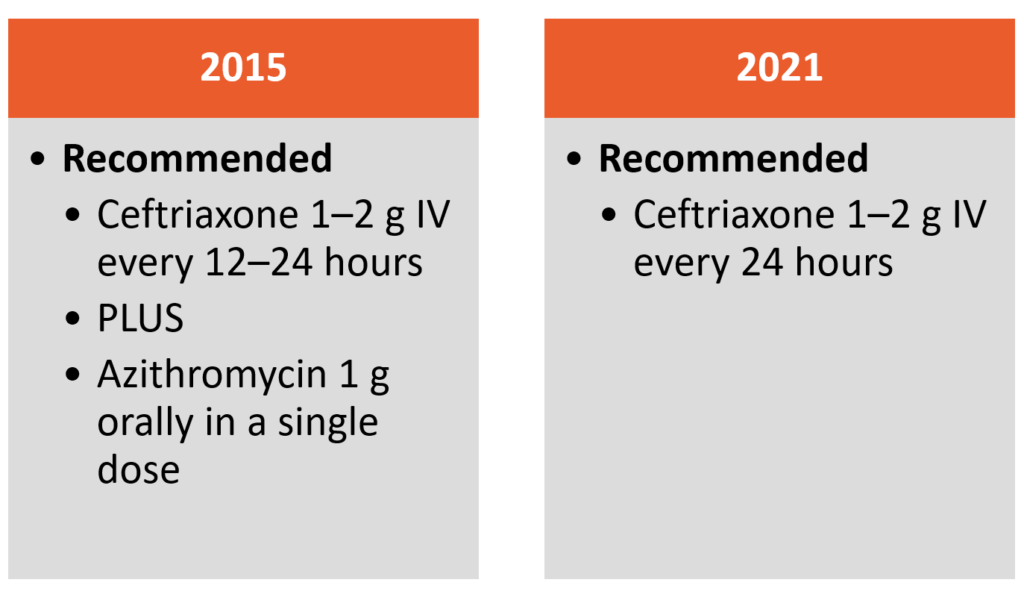
“Tricks of the Trade”
•Give ceftriaxone IM with lidocaine
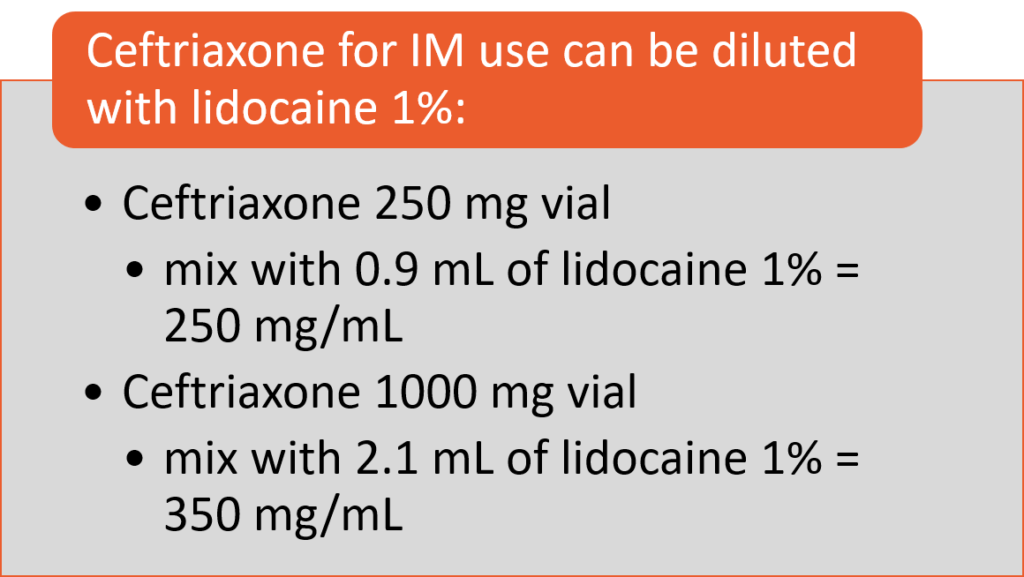
•Give IV ceftriaxone for patients with IV access
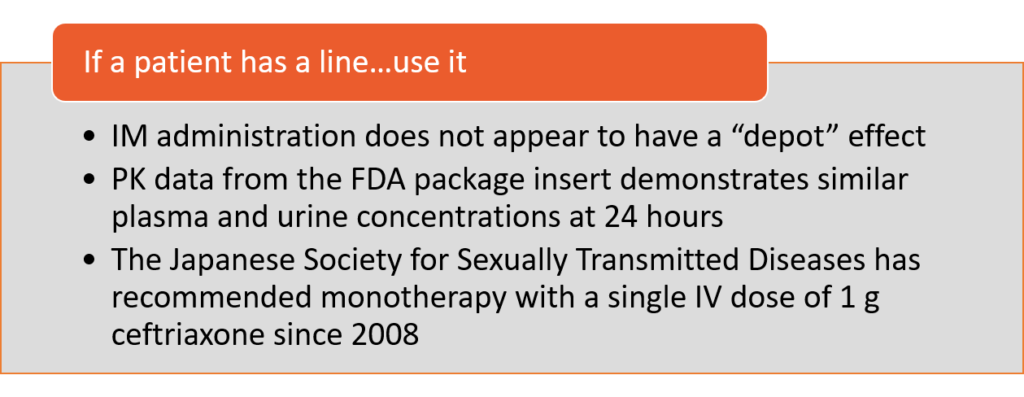
PCN Allergy

•For persons who report a penicillin or cephalosporin allergy, it is important to determine the severity of the reaction
•Was the reaction consistent with an IgE-mediated reaction
•Did the reaction occurred within the prior 10 years
•Among all persons who self-report a history of an allergic reaction to penicillin or another beta-lactam antibiotic, only 7.1% had a positive objective test that confirmed the penicillin allergy
•Among persons with a history of penicillin allergy, fewer than 1.0% will have an allergic reaction to a third-generation cephalosporin, such as ceftriaxone or cefixime
Expedited Partner Therapy
- If health department partner-management strategies are impractical or unavailable for persons with gonorrhea and partners’ access to prompt clinical evaluation and treatment is limited, EPT can be delivered to the partner by the patient or a collaborating pharmacy as permitted by law
- Recent sex partners (i.e., persons having sexual contact with the infected patient <60 days preceding onset of symptoms or gonorrhea diagnosis) should be referred for evaluation, testing, and presumptive treatment

